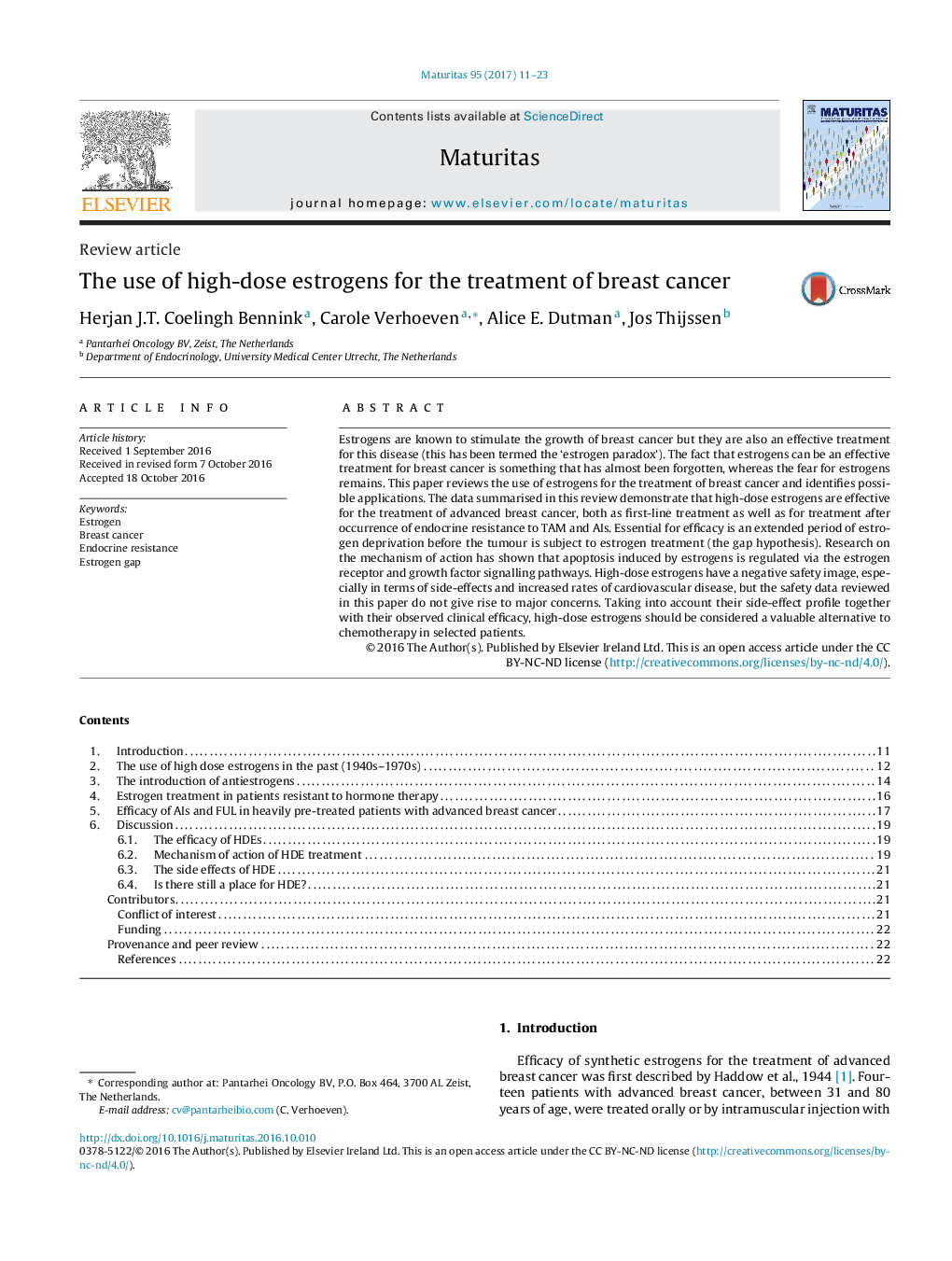| Article ID | Journal | Published Year | Pages | File Type |
|---|---|---|---|---|
| 5503547 | Maturitas | 2017 | 13 Pages |
•High-dose estrogens are effective for the treatment of advanced breast cancer.•A previous long period of estrogen deprivation is required for high-dose estrogens to be efficacious in this regard.•Apoptosis induced by estrogens is regulated via the ERα receptor.•High-dose estrogens are a valuable alternative to chemotherapy in selected patients.
Estrogens are known to stimulate the growth of breast cancer but they are also an effective treatment for this disease (this has been termed the ‘estrogen paradox’). The fact that estrogens can be an effective treatment for breast cancer is something that has almost been forgotten, whereas the fear for estrogens remains. This paper reviews the use of estrogens for the treatment of breast cancer and identifies possible applications. The data summarised in this review demonstrate that high-dose estrogens are effective for the treatment of advanced breast cancer, both as first-line treatment as well as for treatment after occurrence of endocrine resistance to TAM and AIs. Essential for efficacy is an extended period of estrogen deprivation before the tumour is subject to estrogen treatment (the gap hypothesis). Research on the mechanism of action has shown that apoptosis induced by estrogens is regulated via the estrogen receptor and growth factor signalling pathways. High-dose estrogens have a negative safety image, especially in terms of side-effects and increased rates of cardiovascular disease, but the safety data reviewed in this paper do not give rise to major concerns. Taking into account their side-effect profile together with their observed clinical efficacy, high-dose estrogens should be considered a valuable alternative to chemotherapy in selected patients.
